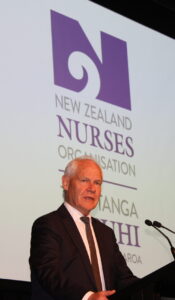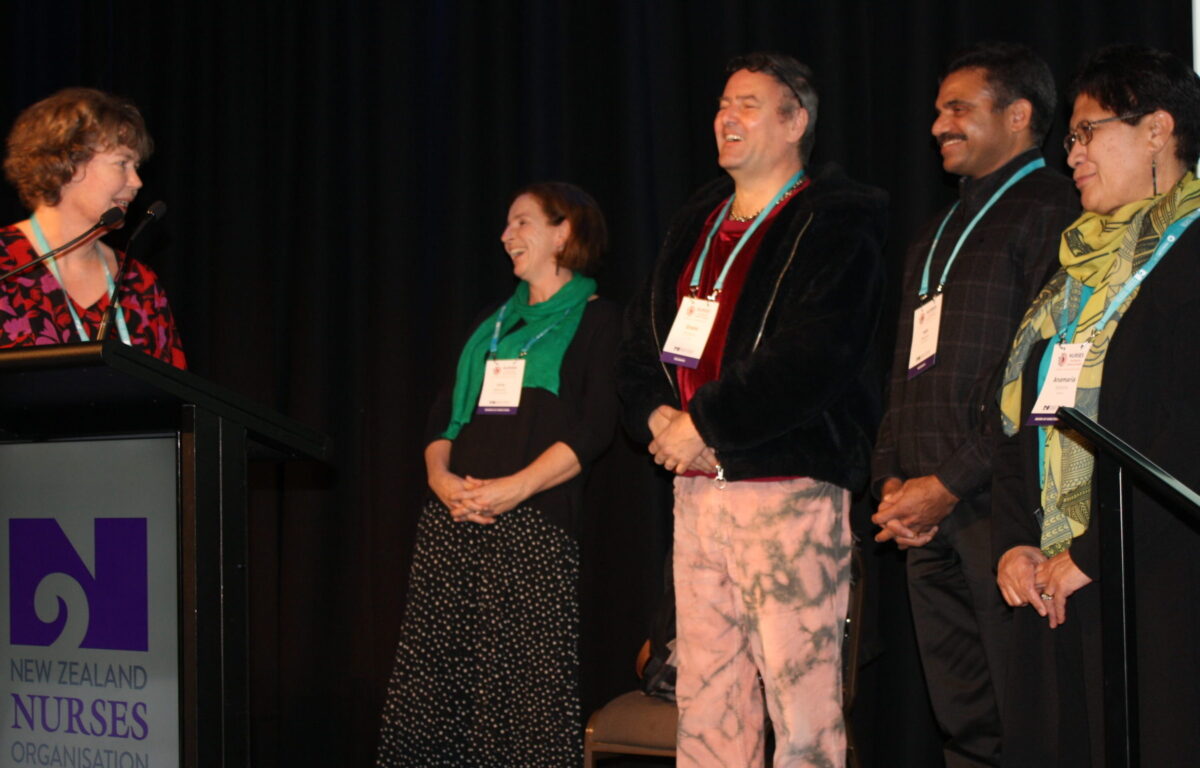A second proposed change to exclude members with dual union membership from being a delegate, participating in elections and holding office was also supported by a majority of voters.
NZNO’s Te Matau a Māui Regional Council proposed the two changes which went to members in July.
Chief executive Paul Goulter announced the outcome of the votes at the AGM in Wellington on Tuesday, September 13.
“It was to ensure there is a certain level of behaviour that is acceptable, and to be very clear about what is not acceptable.”
He said there had been a low return with just 6.31 per cent of members taking part in the vote. Of 55,326 eligible voters, 3492 votes were received.
Bringing NZNO into disrepute
The full proposal for remit 1 makes it a disciplinary offence for members to: “knowingly act in a manner that is likely to either bring NZNO/NZNO officers/NZNO staff into disrepute, adversely impact the mana of NZNO/NZNO officers/NZNO staff, or incite racism or hate”.
Te Matau a Māui Regional Council co-chair Sandra Corbett said the group was pleased voters had supported the remits.
She said the first remit was aimed at preventing individual members from waging personal attacks against organisational leaders and members on social media and “bringing down the mana of the organisation”.
“It was to ensure there is a certain level of behaviour that is acceptable, and to be very clear about what is not acceptable.”
Corbett said the remit would not prevent free and frank discussion about the organisation, which she said was necessary.

“It’s about good governance and having a culture that supports it.”
Dual union members excluded from NZNO office
The second remit regarding dual membership was about “recognising that if you belong to two unions you shouldn’t be allowed to be office-holders in both unions”, Corbett said.
“. . . the implication is something we have to decide at a board level, and that is a conversation we are yet to have”.
That remit was passed with 75 per cent of voters in favour.
Under the change, the affiliate membership part of the constitution (Schedule 1; clause 3) would be changed to state that: “A dual member as defined at subclause 3.4 may not hold office, be a delegate, propose nominations or motions, or have voting rights under this Constitution”.
Dual membership was defined as “where a member is also a member of another union and has authorised that other union to act as the member’s bargaining representative”.
It meant members who belonged to another union, and had chosen that union to do their bargaining, should be subject to the same rights as affiliate members — those who had retired, resigned, or lived overseas.

NZNO’s remit committee has warned such a change could impact on mental health (and some other) nurses in Auckland, Nelson and the West Coast who were NZNO members but — due to an agreement with NZNO and PSA — had no choice but to be represented by PSA in bargaining.
It is not yet clear how many members would be affected by the change.
NZNO president Anne Daniels — who is on the NZNO remit committee — told Kaitiaki she was aware the remit would impact on “a number” of members with dual NZNO membership.
However, members had voted to support it “and the implication is something we have to decide at a board level, and that is a conversation we are yet to have”.
Goulter later told Kaitiaki it would be for the new board to work through the details and effects of the changes, when it met in October.
New board members welcomed
The new NZNO board members were also welcomed at the AGM.
Responding to the election of former president Grant Brookes to the board of directors, Daniels said she was “confident in my determination to ensure that the board stays on the right track”.
The board would “grow from challenge”, she said.
“We need to learn from history and build on it and go forward,” she told Kaitiaki. “The board is going to focus on Maranga Mai! and work in the best interests of members.”
Brookes resigned in May 2020 after five years as president, saying he could see “no way forward” after an extended legal conflict with the board. The differences emerged during contentious 2018 pay bargaining.
Brookes told Kaitiaki he was supportive of NZNO’s member-focused approach and would be working to continue that.
About 160 NZNO members attended the AGM.




